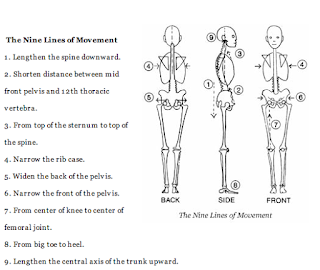The Learning Process
Sunday's monthly MAPP discussion group revolved around the topic of 'knowing and learning' within our practice and within the course. The conversation gravitated towards two different schools of thought in relation to learning:
We established that the majority of learning is undertaken with the aim of eventually being assessed on how much of that knowledge is retained and replicated. This rung truths with most of the dance teachers in the discussion as they admitted that within their practice more emphasis is placed on preparing students for examination of a set syllabus despite the teachers themselves finding more reward in seeing their students grow and apply knowledge learnt to their own bodies in a unique way. This drew parallels with something I am currently reading about as I start Module Two: Positivist and Non-Positivist approaches (which I will be blogging about soon)
Learning in order to be assessed.
Learning in order to grow and gain perspective on your knowledge.
We established that the majority of learning is undertaken with the aim of eventually being assessed on how much of that knowledge is retained and replicated. This rung truths with most of the dance teachers in the discussion as they admitted that within their practice more emphasis is placed on preparing students for examination of a set syllabus despite the teachers themselves finding more reward in seeing their students grow and apply knowledge learnt to their own bodies in a unique way. This drew parallels with something I am currently reading about as I start Module Two: Positivist and Non-Positivist approaches (which I will be blogging about soon)
Positivist: Learning with the expectation of a set outcome or conclusion proved through logic, reasoning and established framework.
Non-positivist: Learning through observation and interpretation with the expectation that conclusions are influenced by ones own perception and experiential knowledge.
Having mulled over the content of Module Two, I feel I was being made to discard the non-positivist approach to learning which I successfully adopted to reflect on my experiential knowledge in Module One by incorporating set research models and data collection/analysis methods in a research proposal. This seemed contradictory to the entire ethos of experiential learning and the MAPP programme. But in voicing this view I was assured by students further down the MAPP programme that this is merely part of the process. De-constructing your initial views on your knowledge and rebuilding them through a series of frameworks to better understand the perspective and extent of your accumulative learning to date.
To what extent are frameworks essential to learning or are they merely self-imposed constraints on the possibility of obtaining a wide-ranging inclusive awareness of ones learning position?

Hi Jesse, really liked your post. And its such an interesting question about frame works, I have come back to frame works over and over again, through out this course, having different feelings about it each time ;-). At the moment, I wonder if a framework can also be an access point for learning... I feel when you become aware of a frame work, you can start to question it, or reflect on how it has become your frame work. By questioning it, I guess you have the possibility to restructure it, or overthrow it completely or keep it as it is, if it still makes sense to you... I don't know, but its definately a question to come back to again!
ReplyDeleteHi Jesse
ReplyDeleteI have finally published my blog from last Wednesday's Skype containing my overview of what was discussed which I think you may find helpful as you were unable to attend. It's been interesting reading your blogs and comments re: queries over approaches, theory for module two etc and I just wanted to clarify that from Wednesdays conversation that you are not alone, most of us are struggling to absorb, understand all the theory/ information involved with Module Two. My tutor has advised me to start looking at literature in my chosen areas of interest and that a topic will evolve as I'm sure yours will.
Good Luck
Fiona